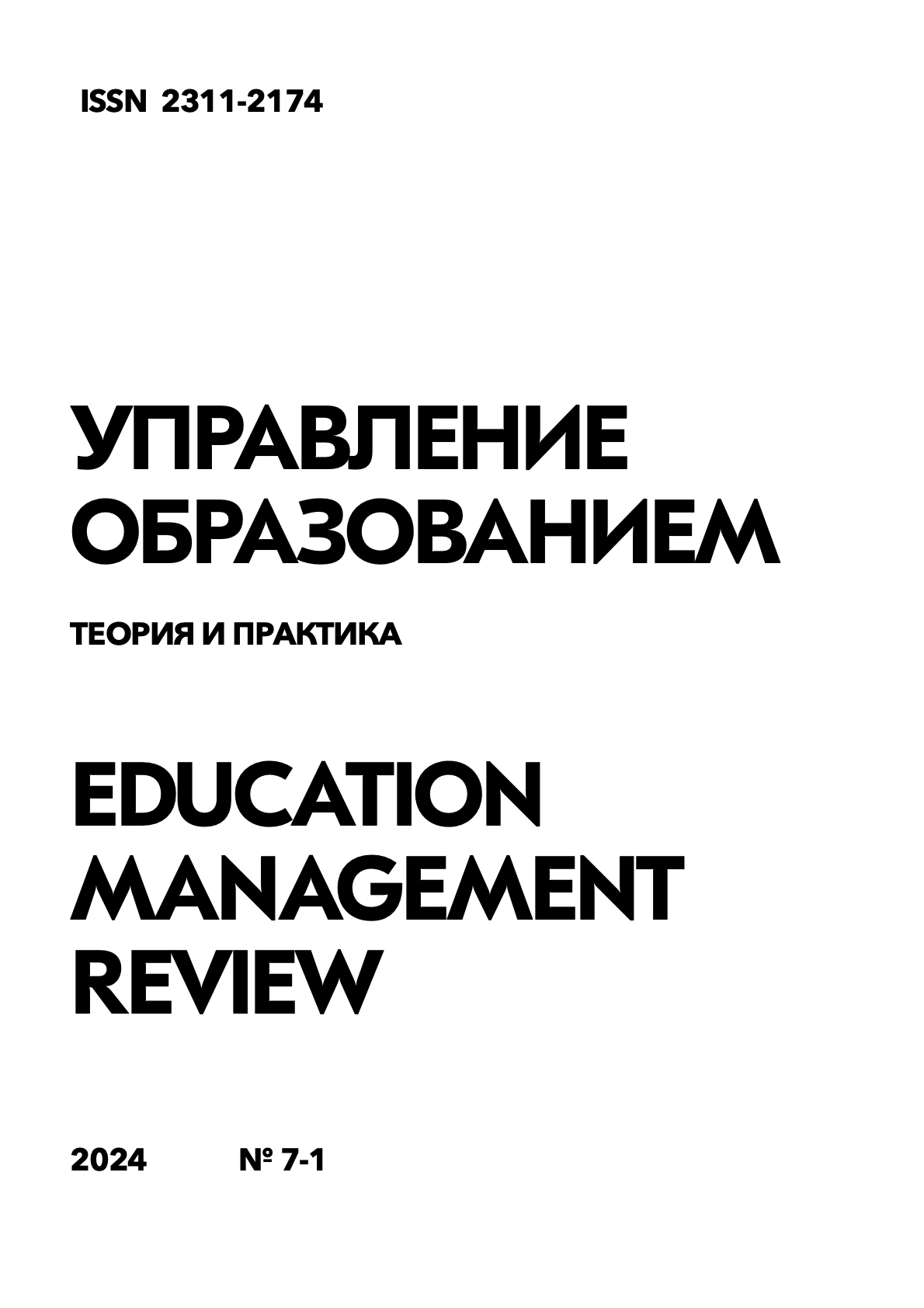Analysis and development of effective organizational and pedagogical strategies to overcome crisis processes in the system of vocational education
Keywords:
vocational education, educational crisis, crisis management, modernization of vocational education and training, organizational and pedagogical strategies.Abstract
The article is devoted to the analysis of crisis processes in the system of vocational education and training and the development of effective organizational and pedagogical strategies to overcome them. The relevance of the study is due to the need to adapt VET to dynamic socio-economic conditions and ensure its competitiveness. The purpose of the work is to identify the key factors of the VET crisis and propose a set of measures to modernize it. Tasks include: 1) analysis of global and local challenges facing VET; 2) identification of institutional and substantive problems of VET; 3) substantiation of the principles of anti-crisis management of VET; 4) development of practical recommendations for the transformation of VET. The research methodology is based on a combination of quantitative (statistical analysis, questionnaires) and qualitative (expert interviews, case studies) methods. The empirical base was made up of official statistics, the results of surveys of 250 heads of vocational education institutions and 30 expert interviews. It has been established that the key manifestations of the VET crisis are: the degradation of the material and technical base, the outflow of qualified personnel, the decline in the prestige of working professions, the gap between the demands of the labor market and the content of training. The principles of modernization of vocational education and training are substantiated: the advanced nature of training, flexibility and adaptability of educational programs, social partnership, network interaction. A set of organizational and pedagogical measures for the implementation of these principles is proposed. The developed recommendations have practical value for management teams and teaching staff of vocational training organizations. It is advisable to direct further research to testing the proposed strategies and evaluating their effectiveness
References
Блинов В.И., Есенина Е.Ю., Сергеев И.С. Основные тенденции развития среднего профессионального образования в мире // Профессиональное образование в России и за рубежом. 2018. № 2(30). С. 12-23.
Бондаренко Н.В., Бородина Д.Р., Гохберг Л.М. Индикаторы образования: 2020: стат. сб. М.: НИУ ВШЭ, 2020. 496 с.
Глушко Д.Е., Полушкина Е.А. Престиж профессии педагога: мнения учителей, студентов педагогических вузов и старшеклассников // Вестник РГГУ. Серия «Психология. Педагогика. Образование». 2020. № 2. С. 124-143.
Дудырев Ф.Ф., Романова О.А., Шабалин А.И. Дуальное обучение в российских регионах: модели, лучшие практики, возможности распространения // Вопросы образования. 2018. № 2. С. 117-138.
Клячко Т.Л., Синельников-Мурылев С.Г. Стратегия для России: образование. М.: ИД «Дело» РАНХиГС, 2018. 118 с.
Коршунов И.А., Гапонова О.С., Гаибова Т.Н. Обучение и образование взрослых в контексте экономического развития регионов // Экономика региона. 2019. Т.15. Вып. 1. С. 107-120.
Кязимов К.Г. Взаимодействие учреждений профессионального образования с субъектами рынка труда. М.: Перо, 2018. 156 с.
Лысова Е.А. Качество подготовки кадров со средним профессиональным образованием: ключевые проблемы и перспективные направления развития // Бизнес. Образование. Право. 2021. № 2 (55). С. 249–255.
Опыт российских регионов в развитии систем среднего профессионального образования и подготовки. Материалы научно-практической конференции с международным участием. Под ред. А.А. Листвина. Череповец, 2020. 114 с.
Перспективы развития среднего профессионального образования России. Сессия 4 // Мат. XIX Апрельской междунар. науч. конф. по проб. разв. экон. и общ. (10-13 апреля 2018 г., Москва). М.: ИД НИУ ВШЭ, 2019. 35 с.
Buxton M. The perceived status of Vocational Education and Training: What are the implications for policy? // International journal of training research. 2020. Vol. 18. № 3. рр. 203-216.
Emmenegger P., Seitzl L. Social partner involvement in collective skill formation governance. A comparison of Austria, Denmark, Germany, the Netherlands and Switzerland // Transfer: European Review of Labour and Research. 2020. Vol. 26(1). рр. 27-42.
Moore D.T., Stephens P.J. Vocational education and training beyond 2020 // International journal of training and development. 2021. Vol. 25. № 1. рр. 5-21.
Taylor A. Competency-based education and the future of work: A critical perspective // Journal of education and work. 2021. Vol. 34. № 2. рр. 199-212.
Vocational education and training in Europe, 1995-2035: scenarios for European vocational education and training in the 21st century. Еd. by С. Schmidt. Luxembourg: Publications Office of the European Union, 2020. 189 p.
Downloads
Published
How to Cite
Issue
Section
License

This work is licensed under a Creative Commons Attribution-NonCommercial-NoDerivatives 4.0 International License.




